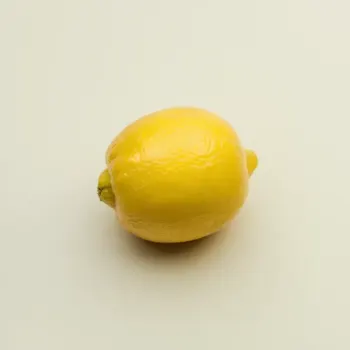
Substitutes for lemon juice in cooking include orange juice, apple cider vinegar, lemon extract, citric acid, white wine, tamarind paste, vinegar, ascorbic acid, lime juice, and white wine vinegar. Each offers a unique flavor and should be used in adjusted quantities to match lemon juice's acidity.
Orange juice can be used in baking to provide a citrus note. It's sweeter and less tart than lemon juice, so you may want to adjust the sugar content. Use it in a 1:1 ratio. It works particularly well in recipes that call for a subtle citrus flavor. Tropicana and Florida's Natural are popular brands.
Apple cider vinegar can substitute lemon juice in baking when a tangy flavor is desired. It's stronger, so use it in a 1:2 ratio (half the amount of lemon juice called for). It also adds a fruity note to baked goods. Bragg and Heinz are well-known brands.
Lemon extract is a concentrated flavoring made from lemon peel oil. It's potent, so use it sparingly; about 1/2 teaspoon extract per 2 tablespoons of lemon juice. It's suitable for lemonade or tea where a strong lemon flavor is essential. McCormick and Nielsen-Massey are popular brands.
Citric acid powder provides a sour flavor similar to lemon juice and is used in beverages to add tanginess. Start with a small pinch and adjust to taste, as it's much more concentrated. It's a good choice when lemon juice is unavailable. Milliard and LD Carlson offer citric acid for culinary use.
White wine adds a similar acidity to sauces and soups and can be used in a 1:1 ratio. It imparts a different, more complex flavor profile. Use a dry white wine to avoid adding sweetness. Popular brands include Kendall-Jackson and Chateau Ste. Michelle.
Tamarind paste offers a tangy, sour taste that can substitute lemon juice in sauces and soups. Dilute it with water and use sparingly, as it's more sour and robust in flavor. It's a common ingredient in Asian and Latin American cuisines. Brands like Tamicon and Laxmi are recommended.
Vinegar, particularly white vinegar, can be used to acidify preserves and pickles in place of lemon juice. Use a 1:1 ratio, but adjust for taste as vinegar is less fruity. It's essential for the acidity needed to safely preserve foods. Popular brands include Heinz and White House.
Ascorbic acid (vitamin C) is used in preserving to prevent browning and to maintain color. Use according to the package instructions, as it is potent and varies by brand. It does not add flavor but keeps the pH level safe for canning. Brands like Ball and Fruit Fresh are commonly used.
Lime juice can be used as a direct substitute for lemon juice in dressings and marinades, offering a similar citrus flavor. Use it in a 1:1 ratio. Keep in mind that lime juice has a slightly more tropical and floral note. Popular brands include Santa Cruz and ReaLime.
White wine vinegar provides a similar acidity to lemon juice and works well in dressings. Use it in a 3:1 ratio, as it's less acidic than lemon juice. It offers a more mellow flavor and is less likely to overpower other ingredients. Brands like Pompeian and Heinz are commonly used.

Your ultimate Recipe Box, Meal Planner, and Cooking Class all in one
| Recipe Category | Substitutes |
|---|---|
| Baking | Orange Juice, Apple Cider Vinegar |
| Beverages | Lemon Extract, Citric Acid |
| Sauces and Soups | White Wine, Tamarind Paste |
| Preserving and Canning | Vinegar, Ascorbic Acid |
| Dressings and Marinades | Lime Juice, White Wine Vinegar |
While lemon juice is a key ingredient in many recipes, the substitutes provided can offer comparable acidity and flavor profiles, ensuring that dishes retain their intended character. Each substitute has distinct properties; choose one that best fits the dish you're preparing, and adjust quantities to suit your taste preferences.